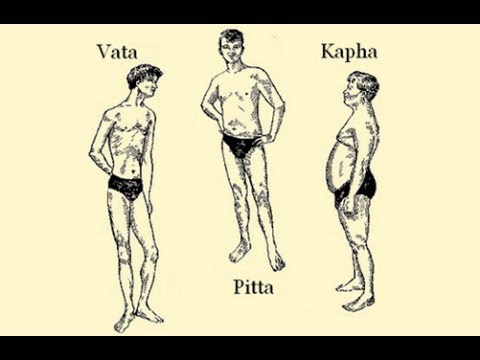The Kapha dosha is governed by heavy elements of earth and water, and govern formation and functioning of the structure of the body. Kapha dosha’s primary responsibility is to hold the cells and tissues together, and to form muscles, fat and bones. Individuals with a dominant Kapha dosha tend to be well-built with excellent stamina, clear skin and luminous eyes. Kapha dosha qualities include heavy, large, slow, soft, oily, and steady. These individuals are naturally calm and loving, with a good (slow but steady) digestive functioning, and have the ability to sleep well.
 As they are largely built and have a tendency to over-eat, they are more prone to imbalances. Kapha dosha is responsible for all cells and tissues in the body. Unbalanced Kapha dosha can lead to severe health and mental disorders in them. When unbalanced, they tend to get depressed, stubborn, lazy and exhibit resistance to change, and may suffer from obesity, diabetes, allergies and weight related complications.
As they are largely built and have a tendency to over-eat, they are more prone to imbalances. Kapha dosha is responsible for all cells and tissues in the body. Unbalanced Kapha dosha can lead to severe health and mental disorders in them. When unbalanced, they tend to get depressed, stubborn, lazy and exhibit resistance to change, and may suffer from obesity, diabetes, allergies and weight related complications.
A Kapha diet should include light, dry and warm foods with pungent, bitter and astringent taste, and avoid sour, sweet, salty, cold, oily and heavy foods. Following is a list of what should be eaten and what should be avoided to pacify Kapha dosha:
At any time of the day you can have this Ayurvedic Kapha Tea to benefit from its stimulating effect or when you feel overweight, lethargic, slowness in digestion or when the weather is too cold.
Dairy: Kapha dosha people should consume milk and its allied products in moderation. Ghee, butter, ice-cream, milk shakes and cheese are an absolute no-no. But one can have fresh low-fat milk, and low-fat yogurt.
Fruits: Light astringent fruits such as apples, cherries, pomegranates, strawberries, cranberries and apricots are very good for balancing Kapha dosha. Once must reduce consumption of very sweet and heavy fruits like bananas, figs, dates, avocados, papaya, coconuts, peaches and melons.
Vegetables: All vegetables are good for Kapha dosha people except tomatoes, cucumber, sweet potatoes and zucchini. Vegetables should be preferably eaten raw, or cooked with moderate amounts of light oils.
Grains: A Kapha diet should include barley, millet, museli, corn, rye, couscous, buckwheat and rye in moderate quantity, while reducing intake of oats and rice. Wheat can be consumed once or twice a week.
Dry Fruits and Nuts: Dry fruits are good for Kapha dosha. One may consume apricots, figs, prunes and raisins daily in small quantities. Nuts are oily and heavy, hence best avoided.
Spices: Most spices, whether hot, pungent or astringent are pacifying to Kapha. However, salt should be drastically reduced as it has water retaining properties, known to aggravate Kapha dosha.
Legumes: Legumes, beans and all pulses with the exception of moist and oily kidney beans and tofu can be eaten. Most soy products tend to be oily, therefore must be avoided.
Cooking Medium: Ghee and butter must be completely avoided. Nutritious and light oils such as extra virgin olive oil, corn oil, almond oil, corn oil, safflower oil or sunflower oil should be used in small quantities.
Meat: Although, its best for Kapha dosha people to avoid meat, but one can consume white meat like chicken, turkey, egg-white, and non-oily seafood. Meat should be preferably grilled or baked as opposed to cooked in oil.
A Kapha pacifying diet should be light and nutritious enough to keep the energy levels high. Make way for natural sweeteners, if you insist on a sweet tooth. Kapha balancing herbal tea is known to be a healthy drink option. The different spices used have unique characteristic and beneficial qualities in them. Eat small proportions and only at required regular intervals to keep the digestive and metabolic systems active and the mind calm.
You can learn the techniques of stress reduction, mind and thoughts control and start emotional healing in 7 days retreat. The Emotional Healing Retreat in Mexico and other countries, will help you to start the process of healing your emotions; will teach you stress management and stress reduction techniques , including all mentioned above and much more.
